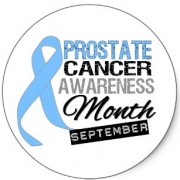
Cancer, an unwelcome visitor in the landscape of health, manifests in various forms, each with its own set of challenges. While advancements in medical science continue to redefine the fight against cancer, some malignancies stand out as particularly formidable adversaries. In this exploration, we shed light on What are the deadliest cancers, examining their impact, risk factors, and the ongoing quest for effective treatments.

1. Pancreatic Cancer: The Silent Aggressor
Pancreatic cancer often operates in stealth, remaining undetected until it reaches advanced stages. Known for its aggressive nature, pancreatic cancer poses significant challenges for early diagnosis and effective treatment. The lack of noticeable symptoms in its early stages contributes to its high fatality rate. Research efforts are underway to enhance early detection methods and develop more targeted therapies for this formidable adversary.
2. Lung Cancer: A Pervasive Threat
Lung cancer remains a global concern, representing one of the leading causes of cancer-related deaths. Linked primarily to tobacco use, it also affects non-smokers due to environmental factors like secondhand smoke and air pollution. The diversity of lung cancer types, coupled with its propensity to metastasize, underscores the urgency for comprehensive prevention strategies, early detection, and innovative treatments.
3. Liver Cancer: The Silent Progression
Often diagnosed at an advanced stage, liver cancer silently progresses, emphasizing the critical need for routine screenings, particularly in individuals with chronic liver conditions. Hepatitis B and C infections, excessive alcohol consumption, and non-alcoholic fatty liver disease contribute to the development of liver cancer. Advances in therapies and ongoing research aim to improve outcomes and enhance survival rates for individuals battling this formidable cancer.
4. Esophageal Cancer: The Stealthy Striker
Esophageal cancer, marked by its silent progression, frequently evades detection in early stage. Factors such as smoking, excessive alcohol consumption, and gastroesophageal reflux disease (GERD) elevate the risk. Innovations in endoscopic techniques and a deeper understanding of the molecular landscape are driving advancements in treatment options and fostering a more targeted approach to managing esophageal cancer.
5. Brain and Central Nervous System Cancers: The Complex Challenge
Cancers affecting the brain and central nervous system pose intricate challenges due to their location and complexity. Glioblastoma multiforme, a highly aggressive brain cancer, is particularly notorious for its resistance to conventional therapies. Research into immunotherapies, precision medicine, and novel treatment modalities seeks to improve outcomes and offer hope to those facing these formidable cancers.

6. Ovarian Cancer: The Silent Intruder in Women’s Health
Ovarian cancer often earns its reputation as the “silent killer” due to the absence of specific symptoms in its early stages. This silent intruder poses challenges in early diagnosis, contributing to its high mortality rate. Advances in genetic testing, early detection methods, and targeted therapies aim to redefine the landscape of ovarian cancer treatment and improve survival rates.
Navigating the Path Forward
While these cancers stand out as particularly challenging foes, ongoing research, technological advancements, and a deeper understanding of the genetic and molecular intricacies of cancer are gradually reshaping the landscape of cancer care and know What are the deadliest cancers for Early detection, preventive measures, and innovative treatments hold the promise of improved outcomes and increased survival rates. The collaborative efforts of the medical community, researchers, and individuals committed to raising awareness are pivotal in navigating the path forward in the ongoing battle against the deadliest cancers.
7. Colorectal Cancer: A Pervasive Concern
Colorectal cancer encompasses malignancies affecting the colon and rectum, posing a significant health threat globally. Lifestyle factors such as a sedentary lifestyle, a diet high in red and processed meats, and genetic predispositions contribute to its development. While screening methods like colonoscopies aid in early detection, colorectal cancer’s ability to progress silently underscores the importance of regular screenings and lifestyle modifications.
8. Stomach (Gastric) Cancer: A Silent Intruder
Stomach cancer, though somewhat less common, remains a formidable opponent with a high fatality rate. In its early stages, symptoms may be vague, making detection challenging. Chronic infections with Helicobacter pylori bacteria, smoking, and a diet high in salty and smoked foods elevate the risk. Advances in targeted therapies and a better understanding of the disease’s molecular underpinnings offer hope for improved outcomes.
9. Bladder Cancer: The Stealthy Menace
Bladder cancer often lurks without noticeable symptoms until it reaches advanced stages. Smoking, exposure to certain chemicals, and chronic bladder inflammation contribute to its development. The challenge lies in its tendency to recur, necessitating vigilant monitoring and innovative treatment approaches. Immunotherapies and personalized medicine are emerging as promising avenues in the fight against bladder cancer.
10. Leukemia: The Bloodstream Battleground
Leukemia, a cancer of the blood and bone marrow, presents unique challenges due to its diverse subtypes. The abnormal production of white blood cells compromises the body’s ability to fight infections. While advancements in targeted therapies and bone marrow transplantation have improved outcomes, the complexity of leukemia requires ongoing research for more effective treatments.
11. Melanoma: The Skin Cancer with Lethal Potential
Melanoma, a type of skin cancer, is notorious for its potential to metastasize rapidly. Intense sun exposure and genetic factors contribute to its development. Early detection through skin checks and advancements in immunotherapies have transformed the outlook for some melanoma patients. Public awareness about the importance of sun protection and regular skin examinations plays a crucial role in mitigating its impact.
12. Kidney (Renal) Cancer: An Underestimated Threat
Kidney cancer often goes undetected in its early stages, as symptoms may not manifest until later. Smoking, obesity, and genetic factors are associated with an increased risk. Surgical interventions, targeted therapies, and immunotherapies have improved outcomes, but continued research is essential for refining treatment strategies and addressing the challenges posed by advanced stages of kidney cancer.
In the Pursuit of Progress: Collaborative Research and Awareness to understand What are the deadliest cancers:
As the medical community continues to unravel the complexities of these deadliest cancers, collaborative research efforts, advancements in technology, and a commitment to raising awareness are critical components in the pursuit of progress. The emphasis on early detection, lifestyle modifications, and the development of targeted therapies signifies a collective dedication to turning the tide against these formidable adversaries. With ongoing perseverance, there is hope for a future where the impact of these deadly cancers is significantly diminished, and more lives are saved through proactive measures and effective treatments.

13. Cervical Cancer: The Preventable Menace
Cervical cancer, primarily caused by persistent human papillomavirus (HPV) infection, is a preventable but significant global health concern. Regular screenings, such as Pap smears and HPV vaccinations, play a pivotal role in early detection and prevention. Public health campaigns promoting vaccination and routine screenings are essential to reduce the burden of cervical cancer and enhance women’s health globally.
14. Thyroid Cancer: A Silent Grower
Thyroid cancer often develops without noticeable symptoms, leading to challenges in early diagnosis. Exposure to radiation, family history, and certain genetic conditions contribute to its occurrence. While most cases have a favorable prognosis, the ability of thyroid cancer to metastasize underscores the need for vigilant monitoring and advances in targeted therapies.
15. Multiple Myeloma: The Complex Blood Cancer
Multiple myeloma, a cancer of plasma cells, represents a complex challenge due to its heterogeneity and resistance to standard treatments. Research into immunotherapies, precision medicine, and combination therapies is ongoing to improve outcomes for patients facing this intricate blood cancer.
16. Uterine (Endometrial) Cancer: Rising Concerns
Uterine cancer, particularly endometrial cancer, is on the rise, attributed in part to factors like obesity and hormone imbalances. Early symptoms may include abnormal vaginal bleeding, emphasizing the importance of prompt medical attention. Advances in surgical techniques and hormonal therapies are contributing to improved outcomes, but the increasing prevalence underscores the need for heightened awareness and research.
17. Non-Hodgkin Lymphoma: The Varied Spectrum
Non-Hodgkin lymphoma encompasses a diverse group of blood cancers, each with its unique characteristics. Immunotherapy, targeted therapies, and stem cell transplantation have transformed treatment options, offering hope for patients facing this heterogeneous and challenging group of cancers.
18. Prostate Cancer: A Concern for Men’s Health
Prostate cancer is a prevalent concern for men, particularly as they age. Genetic factors, family history, and age contribute to the risk. Early detection through prostate-specific antigen (PSA) testing and advances in treatment, including robotic-assisted surgery and targeted therapies, are crucial in managing this common but often slow-growing cancer.
Conclusion: A Collective Endeavor for Progress
In the evolving landscape of cancer research and treatment, a collective endeavor involving healthcare professionals, researchers, policymakers, and the public is paramount. Early detection, lifestyle modifications, and ongoing advancements in targeted therapies and immunotherapies are central to mitigating the impact of these deadliest cancers. By fostering awareness, promoting preventive measures, and supporting innovative research, we stand united in the pursuit of progress against these formidable adversaries, offering hope for a future where the burden of these cancers is significantly reduced, and more lives are saved.
Explore the intricacies of the deadliest cancers, from silent aggressors like pancreatic and lung cancer to complex challenges such as brain and ovarian cancer. Uncover insights into early detection, prevention strategies, and the latest advancements in treatment. Join the collective endeavor to raise awareness and foster progress against these formidable adversaries for a future where lives are saved through proactive measures and effective treatments.”
Disclaimer: As a seasoned healthcare professional and medical physician with 25 years of experience, I want to emphasize that the information provided in this article, “What Are the Deadliest Cancers, is intended for general knowledge and awareness. It does not replace personalized medical advice, diagnosis, or treatment tailored to your specific health condition. My expertise serves to offer insights into the topic, but individual cases may vary. The information provided in this article is for general informational purposes only. It is not intended as a substitute for professional medical advice, diagnosis, or treatment. Clinic RSB does not endorse or guarantee the accuracy, completeness, or reliability of the information contained herein. Always seek the advice of your physician or other qualified health provider with any questions you may have regarding a medical condition. Clinic RSB is not responsible for any action taken based on the information provided in this article. If you have or suspect you have a medical problem, promptly contact your healthcare provider.
It is crucial to consult with your healthcare provider or a qualified medical professional for accurate and up-to-date information related to your health. While I strive to provide accurate and reliable information, I do not guarantee the completeness or appropriateness of the content for every individual.
This article is not a substitute for professional medical guidance, and any actions taken based on the information herein are at your own risk. Always seek the counsel of your healthcare provider for any medical concerns, and do not disregard professional medical advice or delay seeking it because of information obtained from this article.
I, as the author, am not liable for any direct or indirect consequences or damages resulting from the use of this information. Your health is of utmost importance, and decisions regarding medical conditions should be made in consultation with a qualified healthcare professional.

